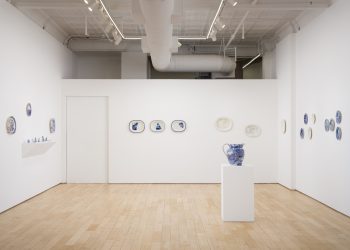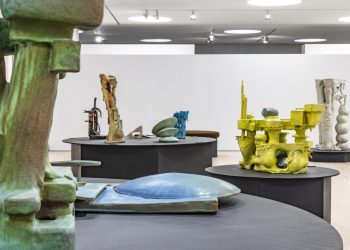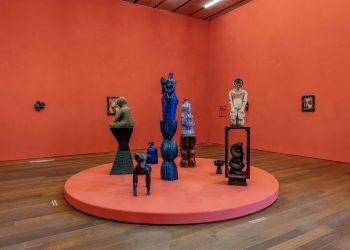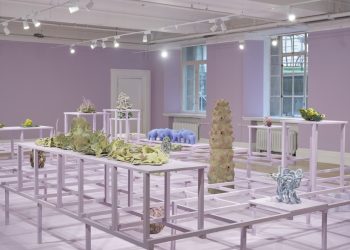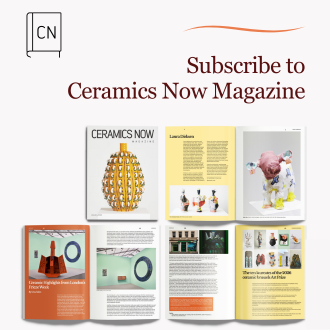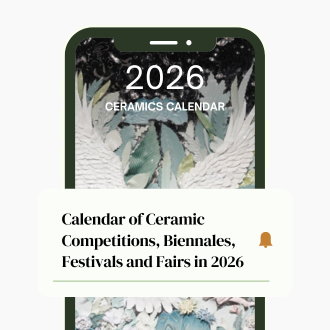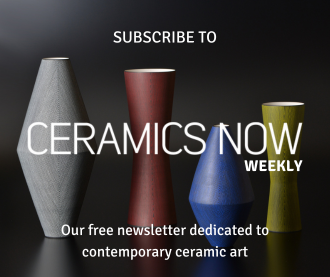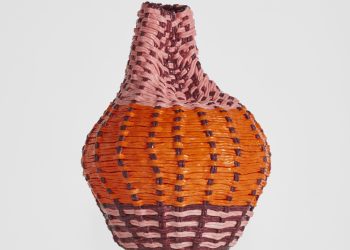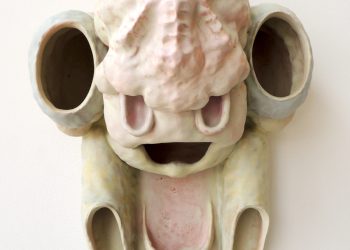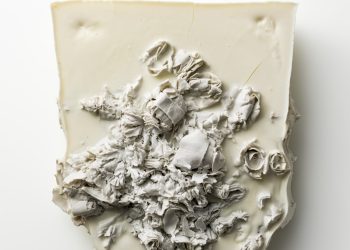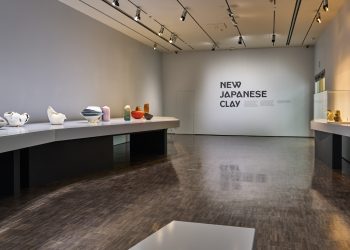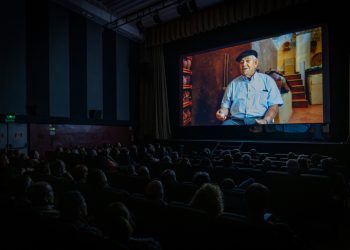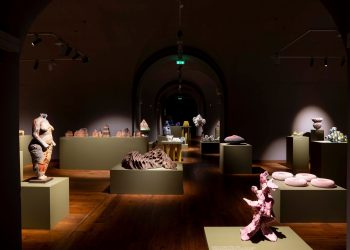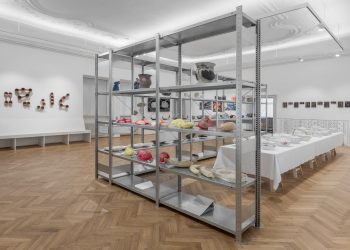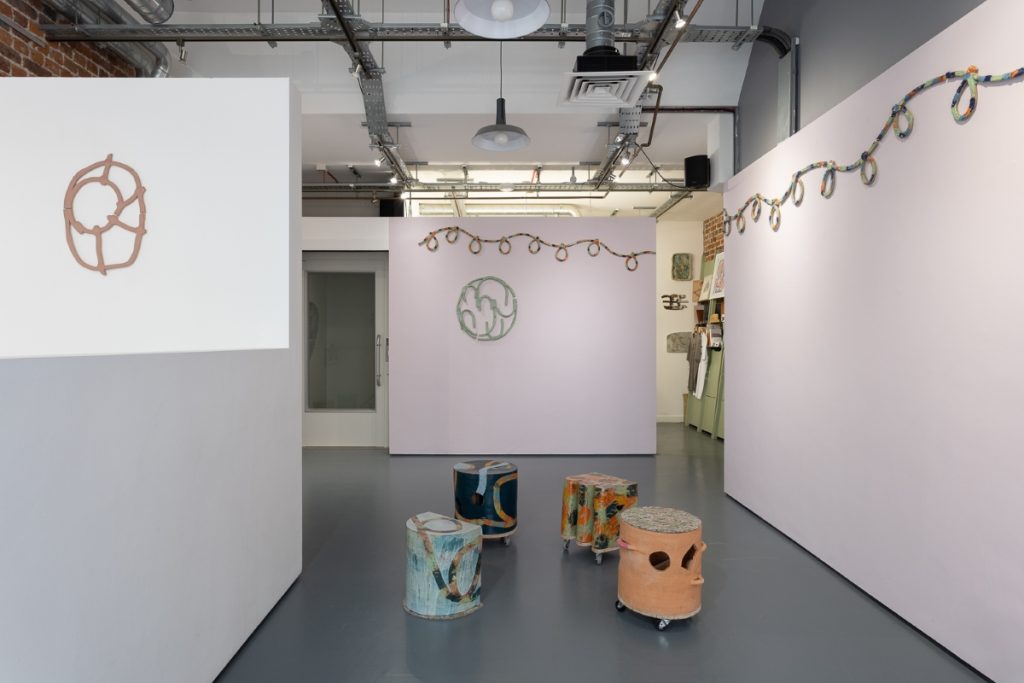
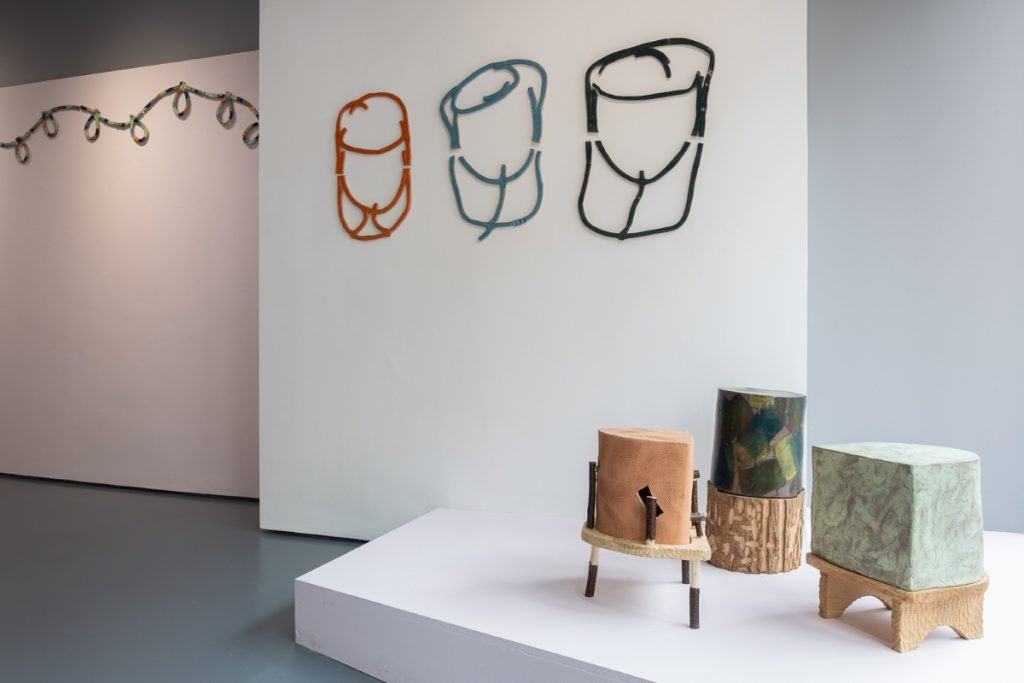
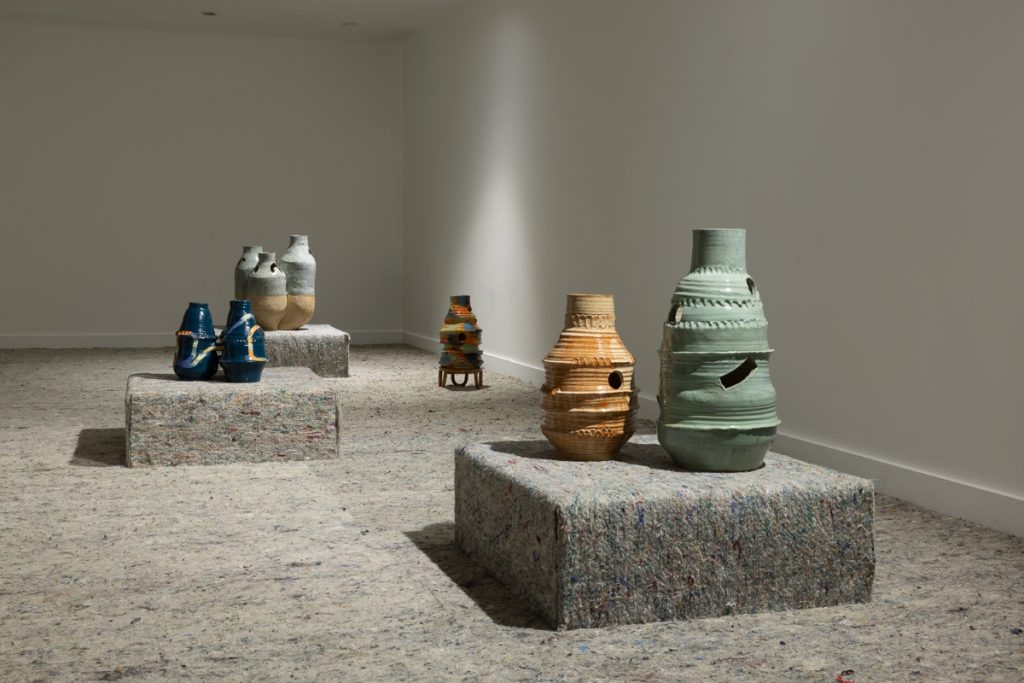
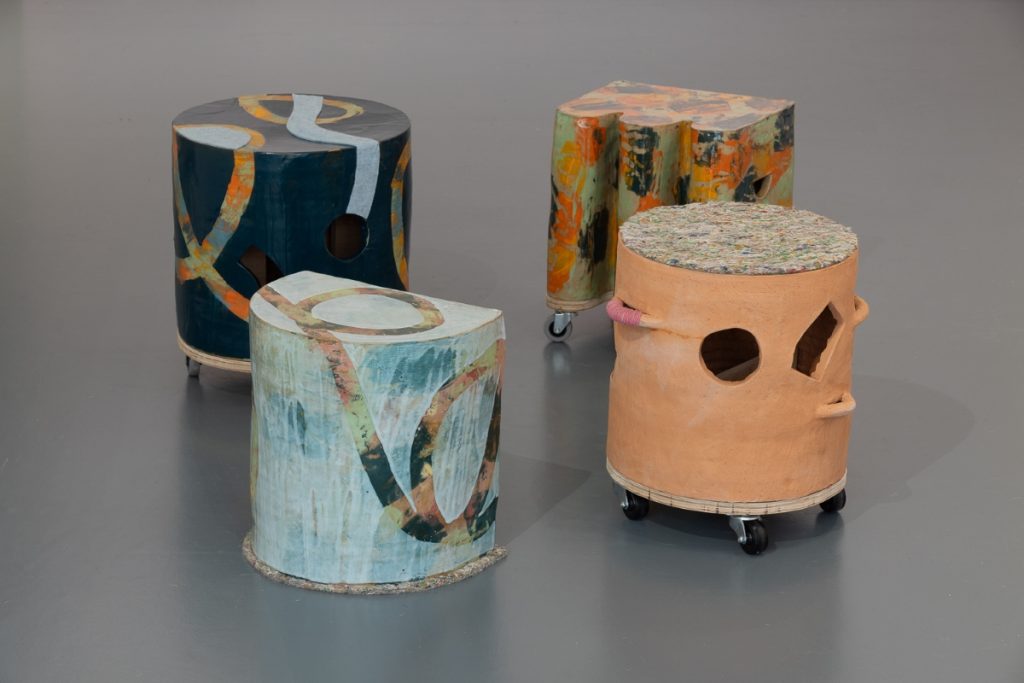
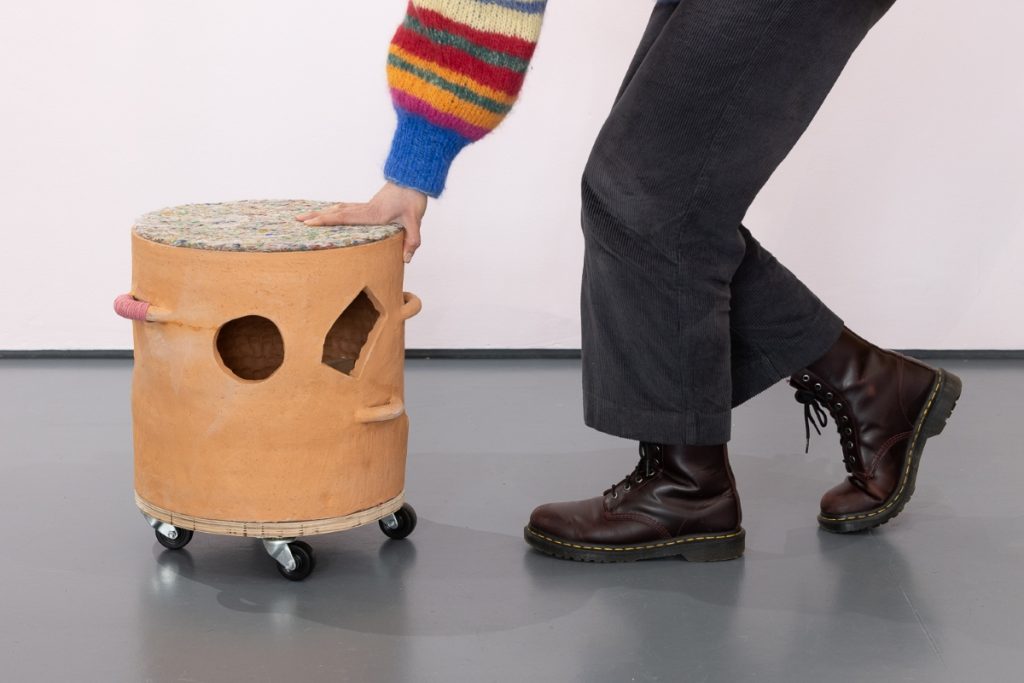
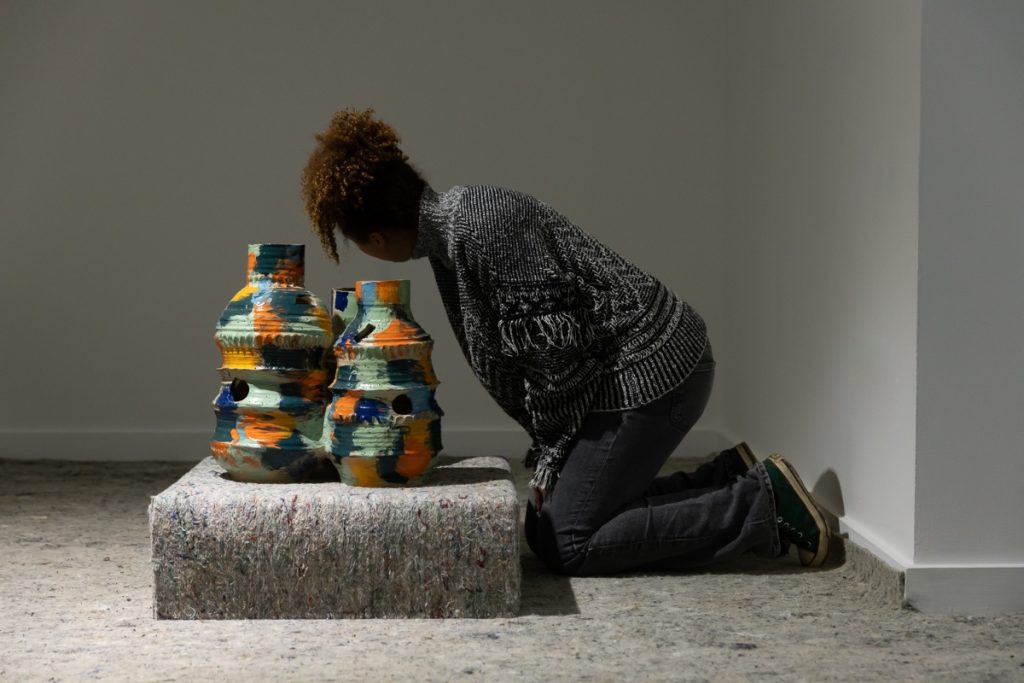
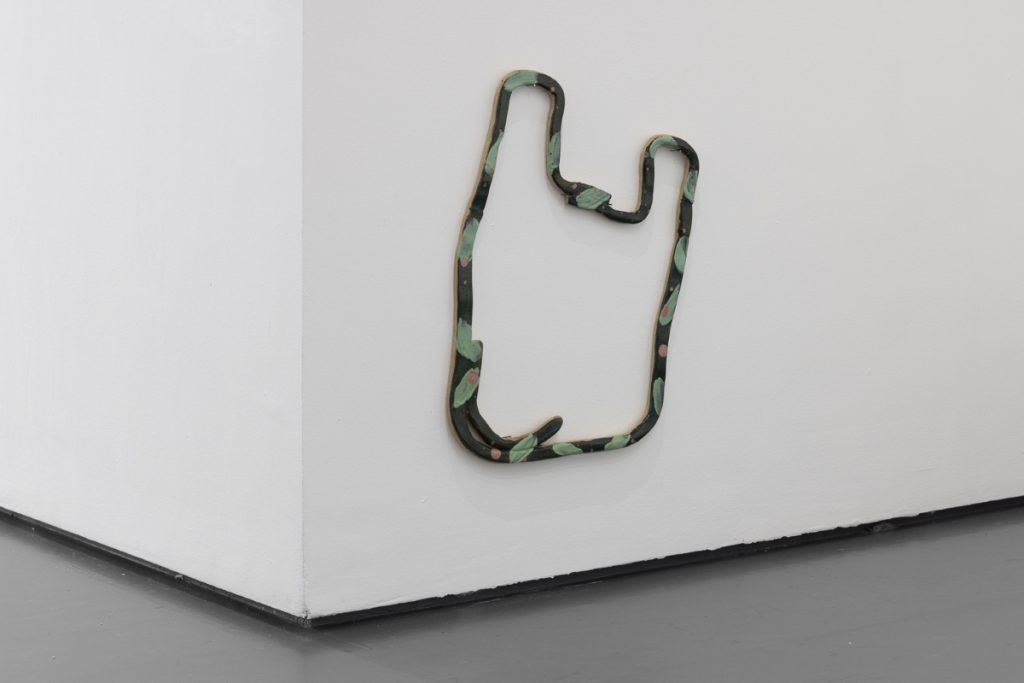
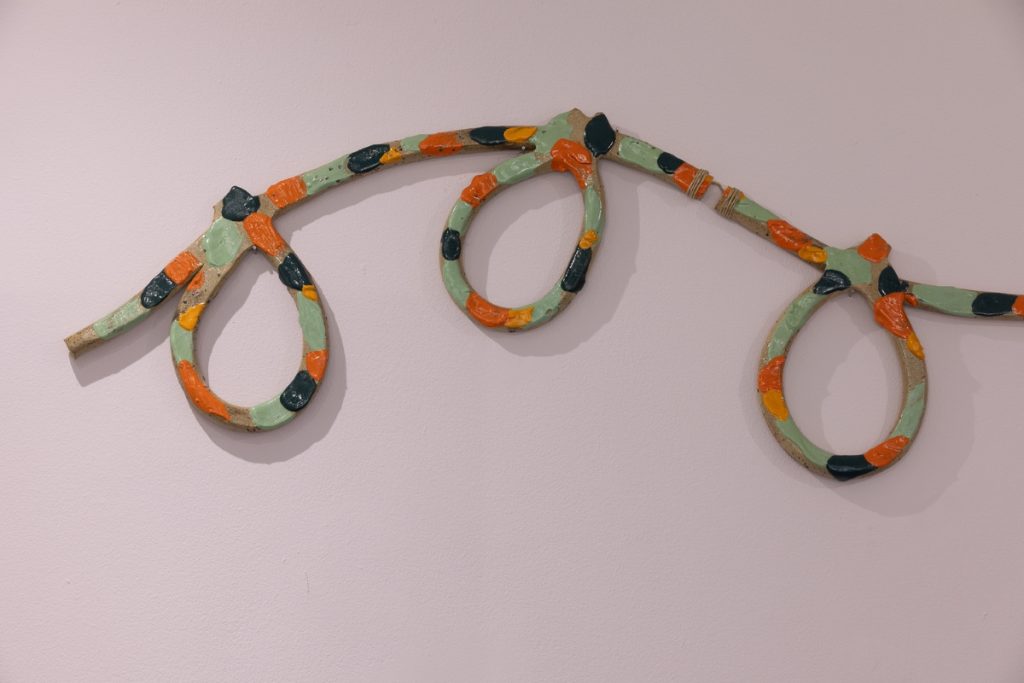
Carla Wright: The Fuddling Gossips is on view at VOLT – Devonshire Collective, Eastbourne
February 15 – April 13, 2025
The Fuddling Gossips by artist Carla Wright is an exhibition of new works that engage with gossip as a form of connection, inspired by social spaces of youth and shared studios as sites of communal making, thinking and doing.
Carla Wright is an artist living and working in East Sussex. She makes ceramic sculptures and wall-based works that explore community architecture and places of gathering in predominantly working class neighbourhoods, centred around public spaces – communal buildings and playgrounds.
The exhibition features a series of works made in collaboration; upstairs a new series of sculptures made with artist Sam Ayre, an ongoing dialogue between the two artists, using furniture design to explore their common ground, inspired by the social structures that shape us. Downstairs, a new sound piece speaks out the voices of a collective of women artists who have worked with Carla at Common Clay, the ceramics studio she runs in Bexhill.
The exhibition is accompanied by a commissioned text by Lizzie Lloyd.
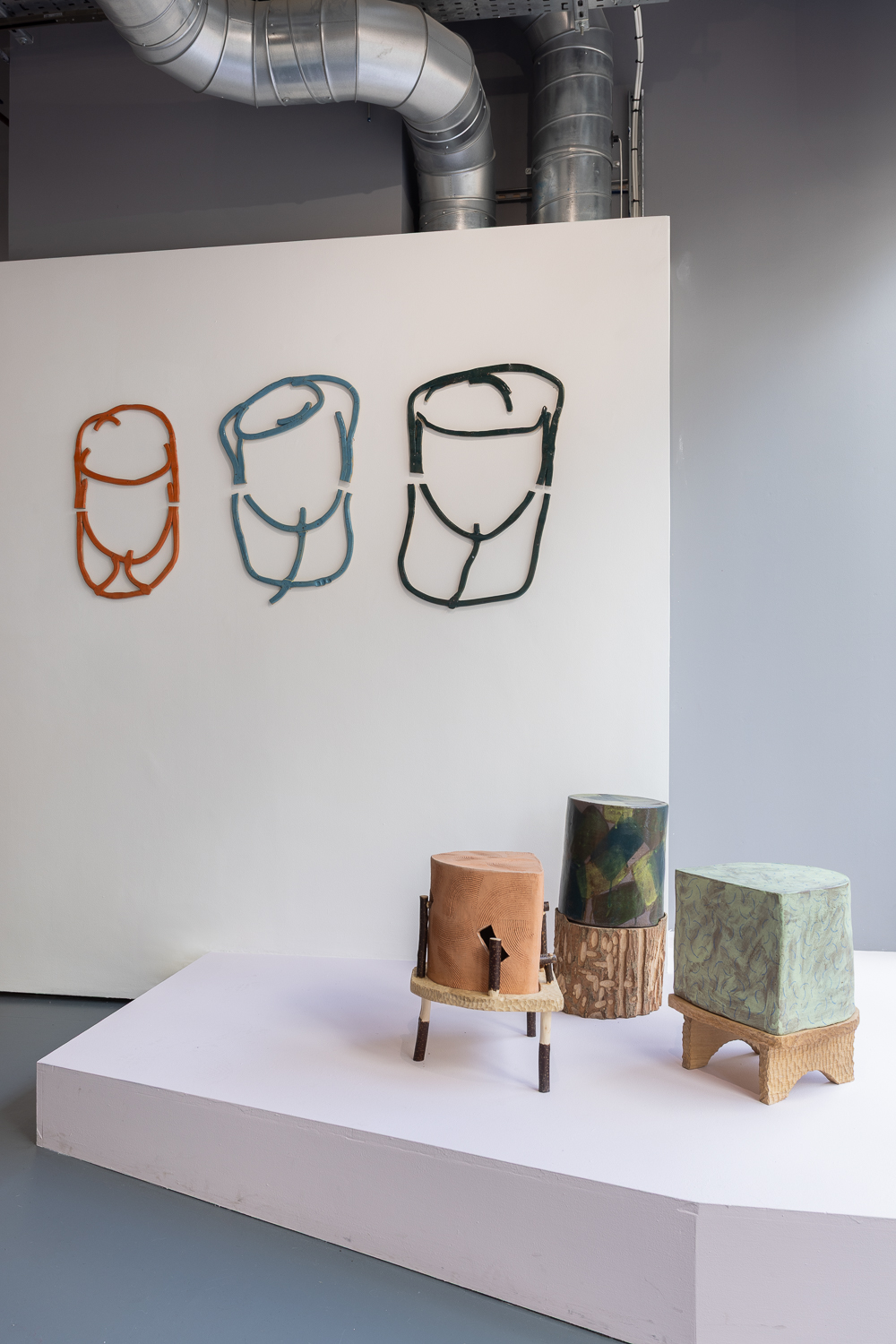
Being in (‘It goes two ways, many ways’)
Essay by Lizzie Lloyd
Hieroglyphic streams of ceramic bunting set the scene, winding their way cursively and looping the loop for the sheer fun of it. They call to mind a time when we could hang about, swinging hoop to hoop from monkey bars, feeling the balls of our shoulders give a little from our sockets, and our legs hang heavy. Naïve ceramic wall scribbles offer a further breath of convivial unselfconsciousness, in the spirit of let’s-see-what-happens if…
Care-free marks like these find their way all over The Fuddling Gossips. Partial curlicues, apostrophes, circles and semi-circles colourfully curve and dash this way and that, seeping oozily from glazed ceramic surfaces. These motifs are abstracted from the décor of community halls, youth groups and social clubs – present in a collage of fragmented archival photographs – the likes of which the artist, Carla Wright, frequented as a child in Bracknell in the 1980s. Those marks which you first read as evidence of joie de vivre become tinged with nostalgia – quickly followed by rage – for a time when public services in the UK were at least a little better funded, when young people and vulnerable communities had places to come together.
Wright is particularly interested in the way that community support manifests for women. The evolution of the definition of gossip, in the exhibition’s title, is telling. Unlike its current pejorative connotations – synonymous with, at best mindless chit-chat, at worst malicious spreading of unsubstantiated rumour – gossip originally came from godsibb, the spiritual support offered by Godparents to children. Later it came to suggest a neighbourliness expressed through social gatherings or festivities and then referred to the care between women during and after childbirth. Gossip’s roots, then, lie in women’s mutual support,1 their sharing of knowledge and advice. It is the intimate, quiet power of gossip, for its ability to unite, that Wright is set on reclaiming by drawing links between gossip and what Ursula K. Le Guin calls ‘mother-tongue’ which is ‘primitive […] unclear […] banal’. It is ‘the same over and over, like the work called women’s work; earthbound, housebound’.2
Le Guin goes on to define mother tongue as a ‘turning together’ where language is conceived not as just a means for communication but as ‘relation’. Amidst the bunting in The Fuddling Gossips you find a number of handmade ceramic stools, scattered appearing as if in mid-conversation. The stools are unfixed – some are on wheels – lending them an informality that invites not just distanced admiration, but use. You might perch on them, even move them with care into your own groupings, to form new interconnections. This is a space meant not just for passing through but being in, making yourself at home.
Elsewhere, relations are more entangled. Downstairs, set low on a raised carpet of utilitarian grey wool felt (the kind used by furniture movers to protect belongings) is an imprecise line of spot-lit torso-sized pots. The seventies colour combinations and geometric motifs of the decorative glazes from the stools upstairs continue but, structurally speaking, the pots are much more complex. They are inspired by medieval fuddling cups, which were the centrepiece of group drinking games and made of multiple interlinking receptacles. Asymmetrical and rimmed with uneven ridges, Wright’s pots capture the intuitive human hands of their maker and cut out forms from their exterior reveal their internal workings, a puzzle of inner ceramic tubes, cavities, and complicated points of interconnection. A polyphony of female voices emanates from the bellies of the pots. The voices string together a rumination of day-to-day worries: ‘my back’s killing’, ‘honestly I’ll be fine’, ‘it’s so dark’ ‘have you fed the dog’ ‘let’s try and read more books’ ‘what was I just doing?’, ‘quick dinners’, ‘you alright, babe?’, ‘I miss home’. Cut up, and sometimes overlaid, the voices flit from one thought to the next, never elaborating on detail, but building instead to a generalised mounting disquiet tinged with loneliness, guilt, and shame. This is not a smooth back and forth flow of light-hearted conversation, but a series of snatched insights into the turbulence of the hidden emotional states of a group of women. In externalising these thoughts, Wright allows for the possibility of mutual recognition, suggesting that once shared, together, their burden might ease.
The Fuddling Gossips is an ode to the power of coming together through assembly and imperfect assemblage. Wright’s stools invite you to linger. Her pots are formed of multiple parts which are conjoined into babel-like conglomerations. She honours inevitable breakages with visible repair, filling ceramic cracks with joyful colour and piecing together ceramic wall drawings with delicate twine fastenings. The Fuddling Gossips, then, is a physical and audible manifestation of spaces and systems of support for women, which, like Le Guin’s mother-tongue, ‘goes two ways, many ways’: ‘Its power is not in dividing but in binding.’
Commissioned text for The Fuddling Gossips by Carla Wright at Volt, Devonshire Collective, 2025
Lizzie Lloyd is a Bristol-based art writer and researcher. Her writing has been commissioned by numerous arts publications and galleries, including Art Monthly, Art Review, Frieze, Exeter Phoenix, Bosse and Baum, Cample Line, WORKPLACE and Temple Bar Gallery and Studios for Venice Biennale (2022). She is founder of WITTA (Writing In /To / Through Art) which she runs with Kit Poulson, and is co-editor in chief of JAWS: Journal of Art and Writing. She is Senior Lecturer in Fine Art /Art & Writing at UWE Bristol.
Devonshire Collective is a collectively-led cultural and community organisation rooted in Eastbourne’s Devonshire ward. We support grassroots arts and culture, create opportunity for communities and deliver a dynamic, high-quality creative and artistic programme where everyone is welcome.
Contact
info@devonshirecollective.co.uk
Devonshire Collective
67-69 Seaside Road
Eastbourne, BN21 3PL
United Kingdom
Photos courtesy Rob Harris and Devonshire Collective



